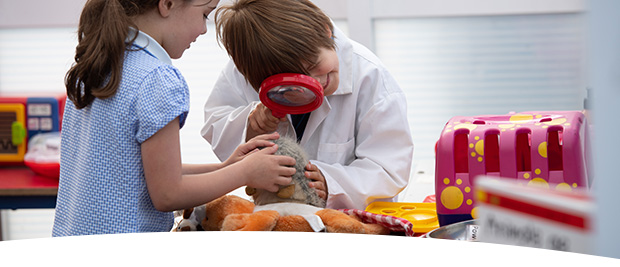Science
Intent
Science is vital to our future prosperity and we feel that it is important for everyone at Prior Heath to develop a love for the subject. The children will be provided with the foundations required to understand the specific disciplines of Science to help them understand the world around them at an age-appropriate level. We aim to develop children’s natural excitement and curiosity to inspire them to pursue scientific enquiry now and later on in life. Children will work scientifically by investigating, explaining and analysing phenomena, making predictions, questioning the world around them and solving problems. Teachers will nurture a love for the natural world, excitement for future possibilities in Science and provide many opportunities for pupils to develop their own growth mindset and rational thinking.
Implementation
The Curriculum
- Science teaching is implemented through the Early Years Foundation Stage (Understanding the World) and the National Curriculum programme of study for Key Stage 1.
- In EYFS the children make sense of their physical world as part of their learning in ‘Understanding the World’.
- The National Curriculum provides a structure and skill development for the Science curriculum being taught.
- Teachers are familiar with previous and subsequent year groups’ content in order to link learning and build on previous knowledge.
- Teaching is progressive throughout the school.
- When there is a natural link between a Science topic and other curriculum areas, teachers work in a cross-curricular manner e.g. to link the teaching of materials by making a non-fiction book in English.
Teaching
- Teachers complete a KWL chart in Key stage 1. They begin by finding out what the children already Know about the topic and what they Want to find out. This is referred to throughout and is evaluated at the end with a discussion about what they have L
- Teachers follow children’s interests and lines of inquiry.
- Lessons include a working scientifically element so that all skills are covered by the end of Key Stage 1.
- Working scientifically skills are progressive.
- Specialist vocabulary associated with each topic is identified and explained.
- Teaching is differentiated either by resource, support or ability grouping.
- Use of open ended enquiries allow all children to access learning at their level.
- Children are challenged to make connections within science and apply their knowledge to real world situations.
- Teachers support SEN children in line with their support plans.
- Outside visitors and trips are utilised where possible.
- Resources are readily available to staff to carry out all lessons.
- Science topics encompass elements of maths and English.
Assessment
- Children demonstrate prior knowledge when completing the KWL charts and then add to this over time as new learning occurs.
- End of unit assessments allows the teacher to address misconceptions and plan next steps.
Impact
Impact in Science is measured through end of unit assessments, development of scientific vocabulary, verbal responses to open ended questions and observations within the class. The children acquire age appropriate scientific knowledge and are equipped with investigative and experimenting skills. They have a rich scientific vocabulary and a sense of curiosity and excitement for the word around them. They have well developed questioning skills and can make connections between scientific concepts as they move throughout the school e.g. plants are covered in all year groups. The children can confidently report and explain outcomes, both written and orally. They are inspired to continue science learning in later life or pursue a STEM career. They are able to work collaboratively with their peers and are aware of the SMSC concerns surrounding science in the modern age.
The Progression of Skills for Science from Reception to Year 2 can be found here. (PDF, 149.3 kB)


